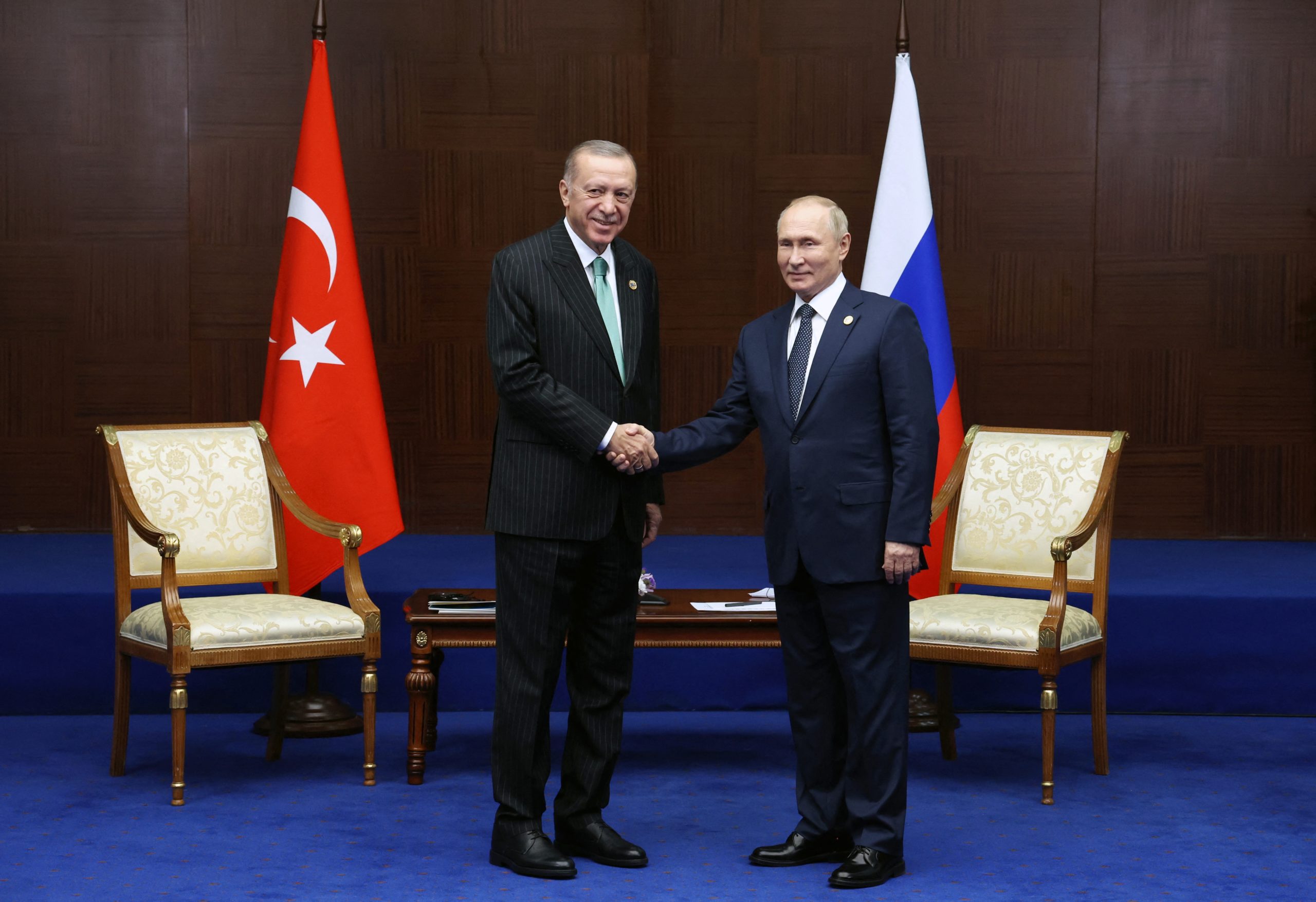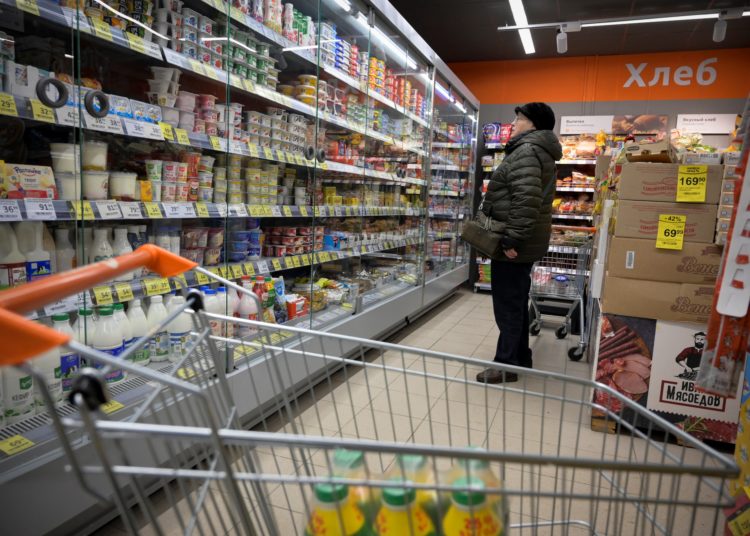Levent Kenez/Stockholm
The US government on March 2 warned multinational companies to comply with sanctions imposed on Russia and Belarus, stating that otherwise the companies could be faced with criminal prosecution, administrative enforcement actions or additional designations. Several countries, including Turkey, are accused of facilitating the entry of products that are prohibited from being exported to Russia.
Malign actors continue to try to evade Russia-related sanctions and export controls. One of the most common tactics is the use of third-party intermediaries or transshipment points to circumvent restrictions, disguise the involvement of Specially Designated Nationals and Blocked Persons (SDNs) or parties on the Entity List in transactions, and obscure the true identities of Russian end users, the US departments of Justice, Commerce and Treasury said in a joint notice.
“Given the proliferation of sanctions and export controls imposed in response to Russia’s unjust war, multinational companies should be vigilant in their compliance efforts and be on the lookout for possible attempts to evade U.S. laws. The U.S. government has a variety of tools to crack down on evasion efforts, and the past year has shown that it will not hesitate to pursue criminal prosecutions, administrative enforcement actions, or additional designations where the circumstances so warrant,” the joint notice said.
According to US authorities, common red flags can indicate that a third-party intermediary may be engaged in efforts to evade sanctions or export controls, including routing purchases through certain transshipment points commonly used to illegally redirect restricted items to Russia or Belarus. Such locations may include China (including Hong Kong and Macau) and jurisdictions close to Russia, including Armenia, Turkey and Uzbekistan.
United States Deputy Secretary of the Treasury Wally Adeyemo previously sent a letter to Turkey’s top business group, the Turkish Industrialists and Businessmen’s Association (TÜSİAD) in August 2022, warning Turkish businesses against working with sanctioned Russian institutions and individuals.
Adeyemo also spoke several times with his Turkish counterpart, Yunus Elitaş, deputy treasury and finance minister, and reportedly told him that Russian institutions and individuals were trying to use Turkey to circumvent the Western sanctions imposed due to the invasion of Ukraine.
Nordic Monitor last week reported that foreign trade statistics since the beginning of the Russian-Ukanian war show that Turkey’s trade with Russia increased considerably in 2022. According to Turkish Statistical Institute (TUIK) data, trade volume with Russia, which was $34.73 billion in 2021, doubled to $68.19 billion in 2022, with imports from Russia accounting for a significant part of the increase.
Imports from Russia, which stood at $28.96 billion in 2021, rose to $58.85 billion in 2022. Russia has become Turkey’s largest trading partner, leaving China behind. Turkey’s share of Russia’s exports increased from 2 to 7 percent.
Likewise, Turkish exports to Russia almost doubled from $5.77 billion in 2021 to $9.34 billion in 2022.
Since Turkey, not a part of the Western bloc against Russia, was rewarded by Moscow, it saved oil expenditures and earned some money from cheap Russian oil in times of a currency crisis due to a deteriorating economy as the Turkish lira depreciated more than 28 percent against the dollar in 2022.
In March President Recep Tayyip Erdoğan made a controversial statement concerning Russian oligarchs to pro-government journalists on the way back from the NATO summit in Brussels, saying: “… if there are certain capital groups that want to come to our country and ‘park’ their facilities with us, of course, we won’t keep our doors closed to them. Our door is open to them as well.”
Erdoğan’s call must have been heeded by Russian businesspeople since Russians ranked first by country in the number of foreign joint ventures established in Turkey in 2022, with 1,363 companies set up with Russian partners. Of these, 140 were joint stock companies and 1,223 were limited liability companies. In 2021 only 177 companies were founded with Russian capital. Russians invested primarily in real estate and investment advisory companies.
The number of Russian trucks that transported goods to Russia had increased to 10,956 as of November 30, 2022, as opposed to some 2-3,000 on average in previous years. Between January 1 and November 30, 2022, 18,804 Turkish trucks made trips to Russia, carrying various exported goods.
Similarly, 13,648 Turkish trucks carried imported goods to Turkey from Russia, while the number of Russian trucks on that route was 7,445 in the same period.
The spike in the number of both Russian and Turkish trucks that transported goods to and from Russia came after a protocol signed between Turkish and Russian delegations on May 16, 2022, less than two months after Russia invaded Ukrainian territories.

The meeting, held under the Joint Commission on Land Transportation, saw a sharp change in the Russian position on maximum transit quotas awarded to Turkish truckers. Russian representatives agreed to increase the annual truck quota for the Turkish side from 8,000 to 20,000 for transportation that is destined to end in Russia and from 6,000 to 35,000 for transit transportation to third countries via Russia.
The US Commerce Department recently imposed export curbs on nearly 90 Russian and third-country companies, including some in China, for engaging in sanctions evasion in support of Russia’s defense sector and prohibiting them from buying items like semiconductors.












